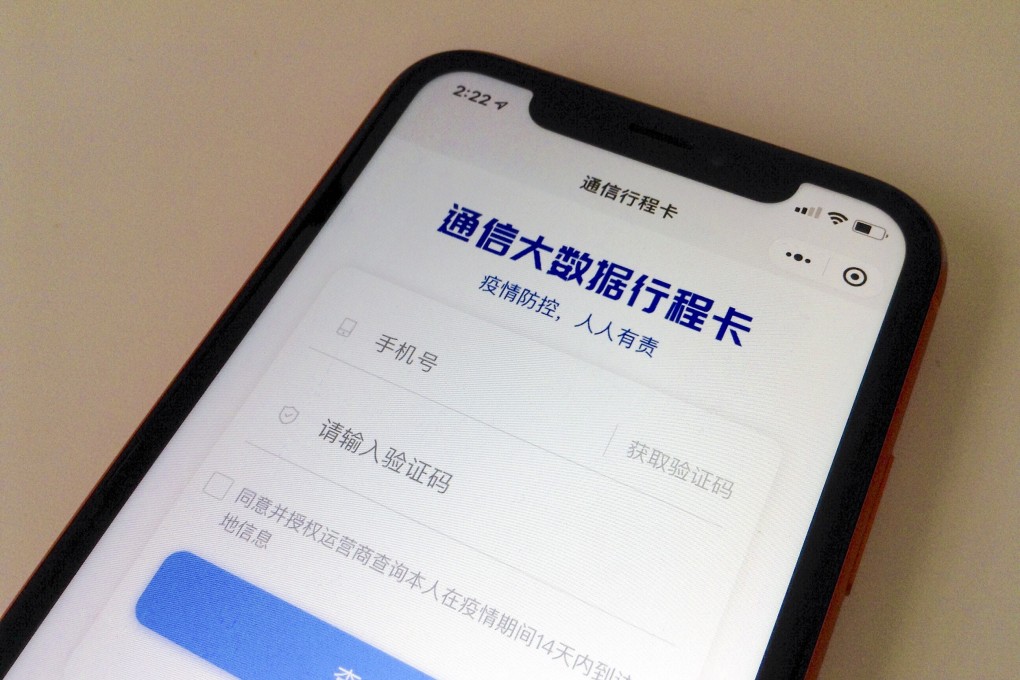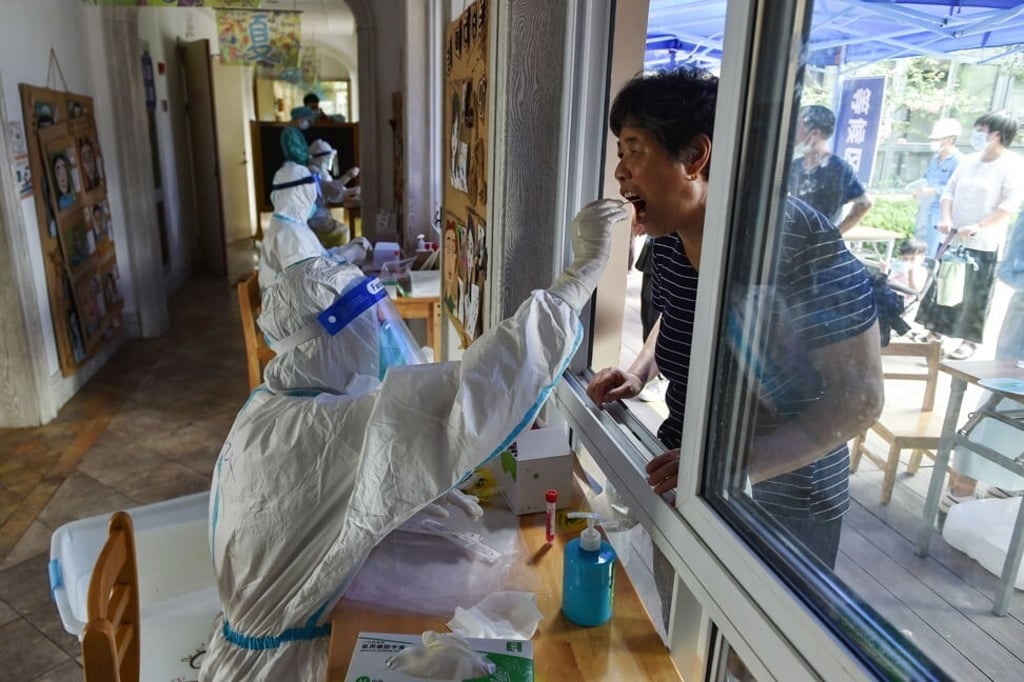Advertisement
China’s Covid-19 tracking app crashes as traffic surges amid fresh coronavirus outbreak
- The widely used app’s crash on Monday morning caused chaos for commuters in many places across the country
- The China Academy of Information and Communications Technology said the service resumed nationwide on Monday afternoon
Reading Time:2 minutes
Why you can trust SCMP

A widely used travel history tracking app jointly developed by the Chinese government and the country’s three mobile network operators crashed on Monday morning, as the country grapples with its most widespread Covid-19 outbreak in months.
Users of the “telecommunications big data travel history” app could not load the program on Monday morning, resulting in chaos for commuters in many places across the country.
“Recently, there has been a surge in the number of inquiries and increased pressure on system services,” China Academy of Information and Communications Technology (CAICT) said in a statement posted on WeChat and Weibo on Monday. It apologised for the inconvenience this has caused to commuters nationwide.
Advertisement
The CAICT, an agency under the Ministry of Industry and Information Technology, launched the app in February last year with co-developers China Mobile, China Unicom and China Telecom.
In a separate statement on Monday afternoon, the CAICT said the app has “basically” resumed service. It had earlier suggested that people access their travel history by sending an inquiry text to their mobile carrier instead of using the app.
Advertisement

The temporary chaos caused by the travel history tracking app’s crash shows how basic personal information collected by authorities has become essential in satisfying the demands of public safety, as the Covid-19 threat persists.
Advertisement
Select Voice
Select Speed
1.00x